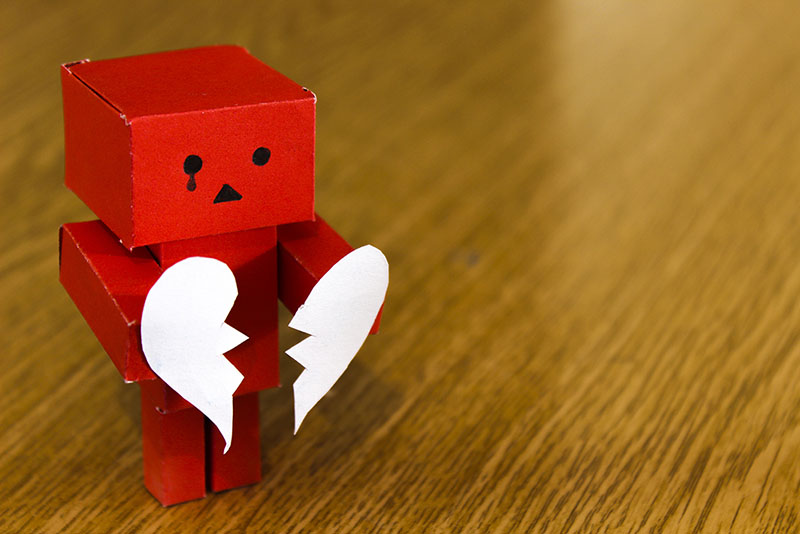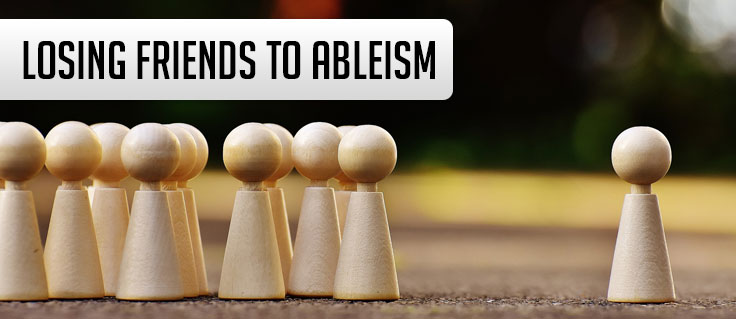- 20Shares
“I would’ve made sure it was accessible if we were closer friends.” An ex-friend said this after I expressed hurt over his party being held in an inaccessible venue. I wasn’t even mad at him initially since it was a surprise planned by his family; they knew I couldn’t get inside, and ignored guests offering alternate, accessible spaces. When this ex-friend told me of the event, all he said was “sorry you can’t come.” That was it.
I wouldn’t have been too upset if this person offered to visit for a mini celebration with mutual friends. I wouldn’t have been angry if he gave a sincere apology rather than defensiveness and silence. Making accessibility a privilege offered only to closest friends or family is horrifically ableist. This person was someone I hung out with regularly, so I assumed we were good friends. But even if we were acquaintances, what he said was dehumanizing. To make things worse, he spouted that quote above knowing I was going through an emotionally vulnerable time in my life. I’m glad I ended that friendship, especially after realizing he was toxic in other ways.
This was not the first time folks invited me to parties that were not accessible. One of my best friend’s mom hosted a party at a local VFW, and we all assumed it was wheelchair accessible because, you know, veterans. But when I got there, there was a flight of stairs. Those friends were as upset and shocked as me, so we partied on another day at home – with ice cream cake. Compassion and following through to solve a problem make all the difference.
It isn’t just about meeting accessibility needs, either. In this guest post by Noemi Martinez, she writes on friends ghosting when our disabilities present themselves in ways that make abled friends uncomfortable:
“Recently, friends went out of my life after . . . we went through some pretty life-changing health scares. Just like we often don’t make conscious decisions on who ends up being our friends, we can’t change when friends feel they are no longer part of the flow of a friendship. We are often left wondering if we were too much.”
We can’t expect friends to always show up in full capacity for support, as they may be going through challenges themselves; but not showing up at all makes us feel like we did something wrong. Friends bailing out when they no longer need something from you happens all the time. When you throw disability in the mix, it complicates how you present yourself in relationships. I used to downplay or hide parts of my disability because I feared losing friends or loved ones. Through internalized ableism, from society telling us disabled bodies are not “normal” and even scary, I was afraid to be honest and open. And when I stopped hiding those things, it was too much for some people. But it was also freeing, as I could be myself while building on relationships that were, and continue to be, healthy for me.

Losing friends to ableism exposes what people think of you as a human being, and that truth is painful. It’s another scar you get from living as a disabled person in a society that devalues you at every point. When I befriend abled people now, I do so cautiously and expect them to mess up occasionally. Unlearning ableism, for both abled and disabled people, is a process that never ends. As mentioned earlier, I still struggle with internalized ableism, and my disabled friends help me through it; we learn from and hold each other responsible for breaking through those negative feelings. My abled friends who have put in the work to dismantle ableism, through self-education and listening to/reading authentic disabled voices, are people who I hold close. These are friendships I respect and cherish, and they’ll last a lifetime.
When someone dismisses my valid pain in the face of ableism, that is unacceptable and the relationship needs to end. It can be hard, especially if you put a lot of energy into a friendship and genuinely enjoyed the company, but it’s necessary for survival. Healthy relationships begin with mutual respect; if you don’t respect each other, there is nothing to build on. I’ve reached a point in my life where I am extremely selective with who I let into my circle, and that’s okay. It saves me from heartache, and I can get the support I need from those I trust.
If you’ve struggled with losing friends because of ableism, I would suggest finding an online or offline community for disabled people. It helps to vent and get advice from folks in similar situations. The Facebook group for the Disability Visibility Project has been a source of support for me that is intersectional – because we must consider how sexism, racism, and other identities factor into our relationships. I’d also recommend the community I manage at work, Easterseals Thrive – we seek to create a space where young disabled women or genderqueer folks can empower each other through comradery.
You are not alone. I know folks throw that phrase around a lot, but for me, it means everything. In my darkest times, the knowledge that others are surviving and moving on from the end of any relationship means maybe I can too. Even if it takes a while, or I go about healing in a different way – or I don’t fully recover at all – it’s fine. Losing friends also taught me what I would and will not put up with, and makes it easier to let go of corrosive individuals. I hope you can take away something positive from my words here. If you’ve experienced similar situations, please don’t hesitate to reach out.


This is a great article!
At the age of 8, a friend called me and said “I don’t want to be your friend anymore, because you can’t run and play like the rest of my friends”. I replied “Oh, okay” and immediately hung up the phone.
I’ve never looked back.
And thanks for sharing, because this post highlights what I firmly believe: The most disabling thing anyone with a disability faces, are the disabling thoughts and attitudes society throw our way.
I’m glad you were able to get something out of this article. Thank you for your thoughts.
This is a great article, we all have to learn to acknowledge ableism, the devastating effects it can have on individuals and not being afraid to call it out when it is used.
Thank you so much for this article. An important read for us abled people.
Thanks for reading!
Thank you for reading.
been there often
Tell me more about what you think ableism is.
In a nutshell, the discrimination and systematic oppression of disabled people.
I can say that this has more or less become the story of my life. I’ve voluntarily decided to end friendships, and even relationships with family, at least 4 times at this point, because of the ableism they were consious of and continued to practice anyway.
These attitudes have included deliberately selecting events that I cannot attend every weekend, never bothering to stop by to say hello to me (when I live only 5 minutes away), or continuing to insist I needed psychiatric help for a neurologic health condition (i.e., I must have been delusional or the c word). The most vicious form, however, was when my former ‘friends’ told me to ‘get over it’ and to not be depressed about my life situation anymore, because apparently “everyone goes through this”.
Safe to say I have become very critical of and selective when it comes to letting people into my social circle. When my disability not only affects my social interactions with my friends but also my family, I feel that I need to be critical in order just to survive and continue to be respected.